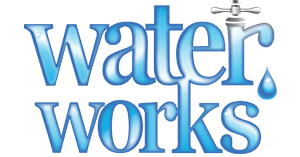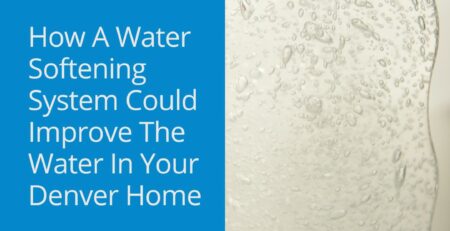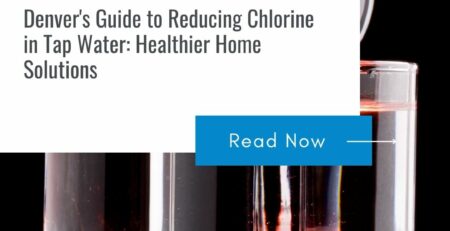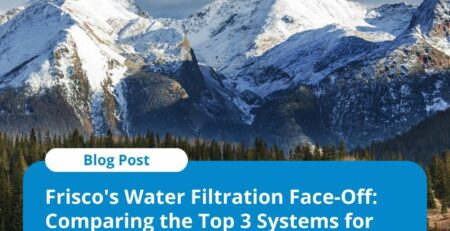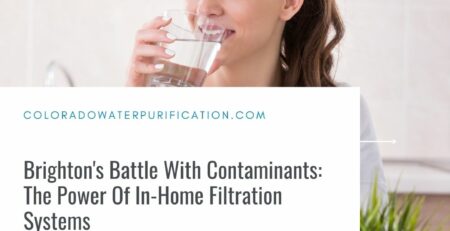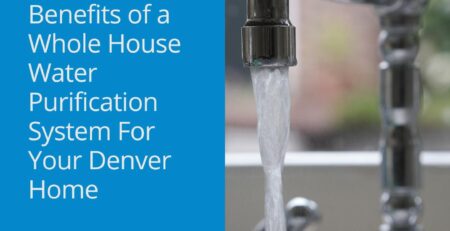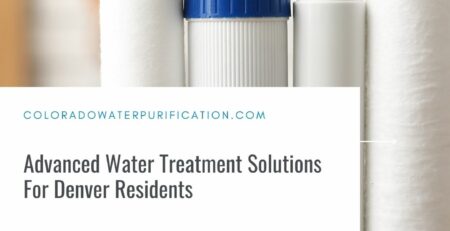The Impact of Radionuclides on Water Quality in Colorado
Are you a Colorado homeowner concerned about the impact that radionuclides could have on your water quality? Understanding how these contaminants can affect drinking water in the state is important for staying informed and making sure all family members are safe. In this blog post, we’ll take an in-depth look at the impact of radionuclides on water quality in Colorado, discussing what they are, where they come from, how to identify them, and which preventive measures can be taken to protect your well or home system. Read on for more details!
What are Radionuclides and How do they Impact Water Quality in Colorado
Radionuclides are atoms with unstable nuclei that can give off radiation in the form of particles or energy. In Colorado, these naturally occurring elements can be found in various rock formations, such as granite, shale, and sandstone. When these rocks come into contact with water, radionuclides can dissolve and contaminate nearby water sources. The impact of radionuclides on water quality can be harmful to human health and the environment. Exposure to high levels of radionuclides through drinking water, for instance, can increase the risk of cancer and other diseases. That’s why it’s crucial for Colorado communities to regularly test their water sources for radionuclides and take appropriate measures to ensure safe drinking water for all.
Sources of Radionuclides in Colorado’s Waters
Colorado is home to a diverse array of ecosystems, from the Rocky Mountains to the high plains. Unfortunately, some of these ecosystems are threatened by the presence of radionuclides in the water. Radionuclides are radioactive isotopes that can be harmful to humans and other organisms. These isotopes can come from a variety of sources, including natural background radiation, mining activity, and nuclear power plants. Radionuclides can persist in the environment for long periods of time, posing a risk to local communities and wildlife. Given the potential health risks associated with exposure to radionuclides, it’s important to closely monitor their presence in Colorado’s waters and work to mitigate their effects on the environment.
How Radionuclides Affect Colorado’s Water Quality
Radionuclides are a major cause of concern when it comes to Colorado’s water quality. These naturally occurring radioactive elements can be found in rocks, soils, and water, and can seep into the state’s aquifers and streams. Exposure to radionuclides in drinking water can lead to an increased risk of cancer, damage to the kidneys, and other health concerns. It’s crucial to understand the sources of these contaminants and implement appropriate treatments to ensure safe drinking water for all Coloradans. Regular testing and monitoring of water supplies can help identify potential risks and prevent contamination before it becomes a serious problem. By staying informed and taking proactive steps, we can protect our water resources and safeguard the health of our communities.
The Different Ways Radionuclides Can Enter Colorado’s Waters
Radionuclides are radioactive forms of elements that can enter Colorado’s waters through a variety of modes. They can be discharged through wastewater or produced naturally by the decay of uranium and thorium. These contaminants can travel long distances, and their presence in water sources can pose a risk to humans and wildlife alike. Radionuclides can enter water sources through surface runoff, atmospheric deposition, and agricultural activities. It is crucial to monitor our water sources closely to detect any presence of radionuclides and ensure they do not pose a threat to our environment and public health. Understanding the different ways they can enter our waters is crucial to preventing further contamination and safeguarding our resources.
Potential Solutions to Reduce Radionuclide Levels in Water
Radionuclides are a pervasive and persistent problem in water sources worldwide. As they are highly radioactive, exposure to them can cause devastating health effects. Fortunately, a variety of potential solutions exist to reduce their levels in water. One approach involves the use of advanced treatment technologies, such as membrane separation and adsorption using specific materials, to selectively capture the radionuclides and remove them from the water. Other methods include physical-chemical treatment, biological treatment, and ion exchange. While each technique has its own set of advantages and challenges, they all hold promise for significantly reducing the levels of radionuclides in water. With continued research and implementation of these solutions, we can work towards a safer and healthier future for all.
How to Monitor and Test for Radionuclides in Your Water Supply
Radionuclides can potentially contaminate your water supply, which is why monitoring and testing for them is crucial. Fortunately, there are several methods available to detect them in your water. An effective way is to conduct a regular water test with your local public health department or through a certified laboratory. These tests can detect radionuclides such as uranium, radon, and radium and determine if they exceed the EPA’s safe drinking water standards. Additionally, you can install a home radon detection device to track levels of radon in your drinking water. It’s important to take the necessary precautions and ensure that the water you consume is safe for your family’s health.
In conclusion, radionuclides can have a profound effect on water quality in Colorado. Although further research needs to be done to understand the exact impacts these contaminants can cause, we can take steps now to protect Colorado’s water from potential contamination. By understanding where radionuclide sources first come from, how they enter our waters and through what routes, and by using available testing and monitoring technology we can work towards a future of safe water in Colorado. To ensure an effective approach to reducing radionuclide levels it is important that all stakeholders are informed about its risks and its availability of solutions. Together we can work towards securing the health of our environment and providing clean drinking water for everyone in Colorado!
